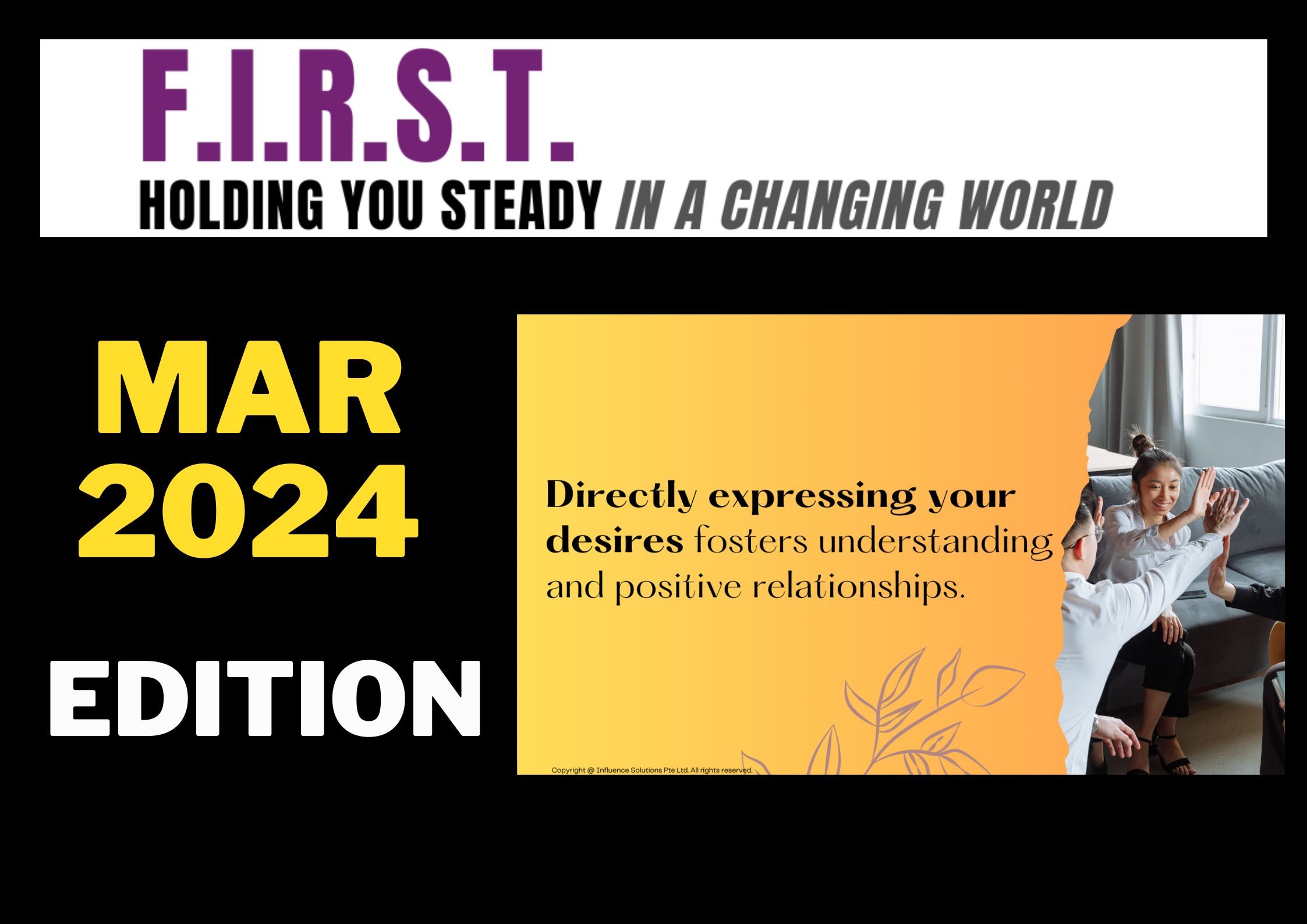|
Happy March.
To support you in being F.I.R.S.T. (Future-Ready. Innovative. Relevant. Strategic. Trusted.), here's 1 tip and 1 quote.
1. The F.I.R.S.T. Tip

Ever found yourself dropping hints instead of just saying what you want? We've all been there – the need to be polite, fear of rejection, or maybe just a desire to dodge conflict, can make hinting seem like the safer option.
But this usually leads to confusion, misinterpretation, misunderstandings, and missed opportunities. After all, unless one is a mind reader, they may not pick up your subtle cues and hints.
So why not speak up and express your desires directly, ensuring there is clarity without any guessing games.
For instance, at the workplace. instead of beating around the bush, hinting at dissatisfaction with progress on a project, we could address this concern head-on with: "I've noticed that we are falling behind schedule and this could impact the commitment we’ve made to our client. Let's brainstorm solutions to get back on track."
Or, at home, why dance around the issue of household chores with passive-aggressive hints like, “If you have so much time to sit around and watch Netflix, I am sure you can spare me some of it to clean the dishes.” These only create resentment, at both ends, without creating any positive change.
Instead, we could try: “I would appreciate it if you could chip in with the chores. It would be really helpful in managing my stress."
Actively advocating for yourself and taking responsibility for your happiness is empowering, fosters positive relationships, and (in professional settings), could lead to greater opportunities and career advancement.
Here are 5 ways that can help you express what you want more directly, firmly and yet politely:
- Be Clear and Specific: When expressing your desires, be as clear and specific as possible. Avoid vague language or ambiguous statements that could be misinterpreted.
- Use "I" Statements: Frame your requests using "I" statements to take ownership of your feelings and desires.
- Frame what you want positively versus negatively as it fosters a more positive response. For example: Instead of: "Don't be late for the meeting." try: "I would appreciate if you could arrive on time for the meeting."
- Practice Active Listening: When asking for what you want, be sure to listen to the other person's response and be open to compromise. Effective communication is a two-way street, and being receptive to feedback can strengthen your relationships, both personal and professional.
- Always use a kind and respectful tone, and show appreciation.
F.I.R.S.T. Tip: Directly expressing your desires fosters understanding and positive relationships.
2.The F.I.R.S.T. Quote

If you would like the F.I.R.S.T. newsletter delivered straight to your inbox every month, subscribe here - https://influence-solutions.com/firstnewsletter


